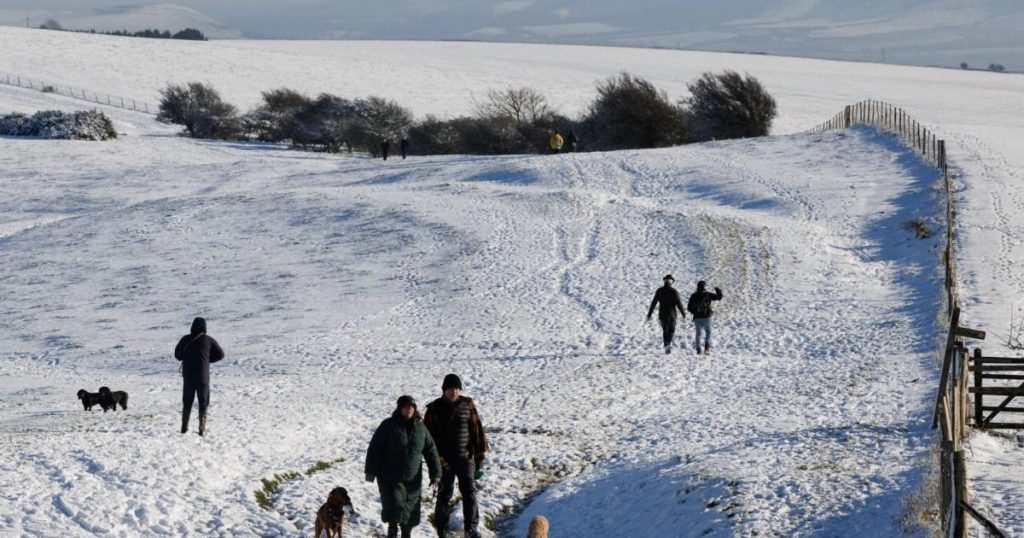The UK, having recently experienced a thaw after a period of snow, ice, and rain, is braced for another cold snap. While the immediate forecast suggests a milder period with temperatures near average in the north and slightly cooler in the south, a polar blast originating from North America is anticipated. This cold spell is expected to primarily affect the south of the country. The immediate weather phenomenon of note is the possibility of “snow grains,” particularly in the south. These tiny ice particles, resembling bean bag filling and no larger than 1mm, are essentially the solid equivalent of drizzle and occur when temperatures hover near freezing.
While the south may experience these snow grains, more northerly regions, such as Northumberland and County Durham, are expected to see temperatures plummet to as low as -3°C. The overall forecast for the coming days is cloudy with occasional patches of rain, and continuing chilly temperatures, especially in the south. Looking ahead to the middle of next week, the weather is predicted to take a turn for the worse, with the southwest experiencing increasing rain and wind. This wetter and windier weather pattern is expected to persist towards the end of the week. There’s also a possibility of colder air from Europe affecting northern Britain, potentially leading to snowfall, particularly in the early part of the week.
Longer-term forecasts suggest a more significant snowfall event around next Thursday. While the Met Office has indicated a “small chance” of snow showers in its short-range forecast, Exacta Weather predicts more substantial snowfall across large swathes of the UK and Ireland starting around Thursday. This prediction is based on the latest data from the Global Forecast System, which indicates conditions cold enough to support widespread heavy snow showers. Prior to this larger snowfall event, Exacta Weather also anticipates snow in the far north and potentially parts of northern England earlier in the week, initially affecting higher ground before spreading to lower elevations.
The uncertainty of the current weather patterns is acknowledged by experts, making precise predictions challenging. While the possibility of snow exists, it’s important to note that there are currently no official weather warnings in place. Warnings are typically issued only when the weather is expected to significantly disrupt daily life, such as causing travel disruptions. Despite the absence of weather warnings, the UK Health Security Agency (UKHSA) has issued cold weather alerts covering most of the UK, excluding the South West. These alerts, valid until next Tuesday, warn of the potential impact of the cold weather on health and social care services, particularly for vulnerable individuals.
The current weather situation underscores the dynamic nature of weather forecasting. While the immediate future holds a mixed bag of conditions, including snow grains, rain, and chilly temperatures, the longer-range forecast hints at the potential for more significant snowfall and colder temperatures. The lack of official weather warnings provides some reassurance, but the UKHSA’s cold weather alerts highlight the importance of taking precautions and being prepared for the potential impacts of cold weather on health, especially for vulnerable populations.
In summary, the UK is experiencing a transitional weather period. After a brief respite from snow and ice, colder conditions are returning, albeit initially in the form of snow grains rather than significant snowfall. While the immediate forecast suggests relatively mild conditions, the latter half of next week holds the potential for more widespread and heavy snowfall, particularly in the north and potentially across larger parts of the UK and Ireland. The situation remains fluid, with experts acknowledging the challenges of predicting the precise timing and intensity of these weather events. In the meantime, cold weather alerts highlight the importance of remaining vigilant and taking necessary precautions to protect vulnerable individuals from the potential health impacts of the cold.











